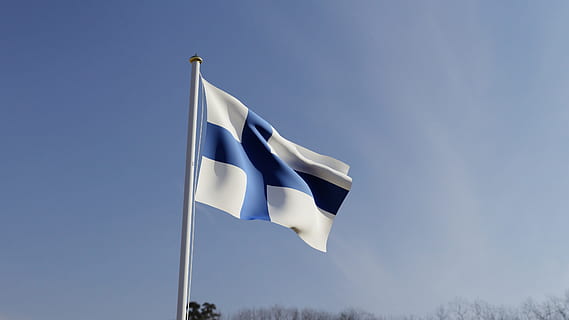
On a scale of one to ten, how happy do you consider your current life to be? It’s a difficult and subjective question that could change depending on any number of factors. Try to focus not on arbitrary things, but instead consider whether you feel happy under our current government, if you are pleased with your life expectancy, or upset about your freedom. These long-term factors are what contribute to the overall happiness of a nation, but what characterises the happiest countries in the world?
Each year, the World Happiness Report compiles a list of the happiest nations. Funded by the United Nations (UN) it ranks national happiness based not upon a variety of statistics or data points but on one subjective scale: how would you rate your current life on a scale of one, at the worst, to ten, at the best. The average score retrieved from each nation is then investigated and ‘explained’ by six factors (GDP, life expectancy, generosity, social support, freedom, and corruption) and compared to the score in ‘Dystopia’: an imaginary least-happy country.
For three years running, Finland has been titled as the happiest country in the world, and is consistently followed by Denmark, Norway, Sweden, Iceland, the Netherlands, and Switzerland. In contrast, the United States and the United Kingdom hover in the mid to late teens. So, what makes the Finnish so happy with their lives?
Firstly, Finland has one of the most advanced welfare systems in the world which guarantees a good standard of living conditions and is generous with all manner of benefits. From 2021, Finland will allow for all parents – both mothers and fathers – to have 164 days of maternity/paternity leave each. Alternatively, a single parent can take all 328 days both parents would usually take. The US looks abysmal in comparison with no requirement for paid maternity leave and their Family and Medical Leave Act providing for only 60% of mothers to take leave at all. Meanwhile, the medium number of weeks taken for paternity leave in the US was just one.
In Finland, their progressive welfare policies indicate tentative steps towards a “care economy” which places personal wellbeing above a traditional economy centered around productivity. The country has consistently revolutionised social welfare payments from the government. In 2019, the government tested a scheme where, in replacement of normal benefits, a group of unemployed individuals were paid £490 with no strings attached. This pilot scheme of Universal Basic Income resulted in reports of greater wellbeing, however initial reports immediately focused on the lackluster employment effects of the scheme. Maybe, then, the key to happiness is to have a government that puts the enjoyment and flourishing of life before unemployment statistics and low benefit spending.
However, surely the US and the UK, rival Finland in terms of freedom, another key value on which national happiness is based upon? It would seem not. Finland scores full points on the global freedom index, while the UK and the US fall behind with 93 and 83 respectively. The main reason for this is the difference in civil liberties with Finland protecting their citizens from defamation, harassment, threats, stalking, privacy violations, and hate speech on top of classic provisions such as freedom of speech.
All this contributes to what I see as the main factor of why Finland harbors the happiest citizens in the world: safety. Finland is a place characterised by safety from threats and occurrences other countries view as inevitabilities. This is not to say that they do not occur, the country still sees hate crime, sexual offenses, and violence, but not at rates seen in other countries. With overwhelming feelings of safety within communities, it is no wonder that Finns feel happier than the rest of us in a world with rising hatred and inter-cultural violence.
Additionally, Finland is a country that experiences low levels of income disparity and inequality. Meanwhile, despite having a GDP higher than Finland, the United States is characterised by growing income inequality and wage gaps. Studies suggest that national happiness is linked closely to levels of inequality, and in the UK income inequality has also been increasing. By tackling the root of the issue with strong social welfare, it is no wonder that the Finns are feeling happier than the rest of us.
Finland represents the power progressive policies hold over citizens. The nation not only leads the world in happiness, but a range of other measures such as freedom, tolerance, education. Through the power of putting people and their first, Finland has managed to balance their citizen’s quality of life with economic growth to form a nation that is the envy of the global community. It seems that at the moment we could all use a more Finnish attitude to life.



Average Rating